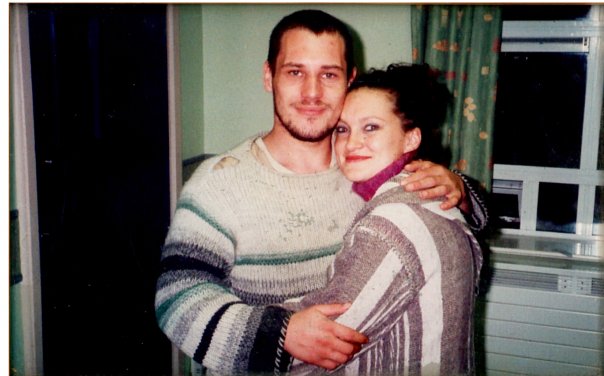 I was very deeply touched interviewing Grainne Humphry about her former partner John Hunt’s ongoing incarceration in the Irish psychiatric system, and about her own struggles with extreme states. Grainne was herself swept up in madness after working as a successful punk rock musician led to a downward spiral of recreational drugs and sleep deprivation. In her psychotic state she could have suffered even worse were it not for the loving acceptance of her family. They guided her back to health with ongoing faith in her capacity to learn and grow from the experience — in sharp contrast to what happened to her partner John, who did not have a supportive family and comes from a less privileged background. Grainne was courageous to do this interview: I was struck by her strong love for John and her very deep sensitivity to the violence she has witnessed him undergo in the name of treatment. She is a shining spirit and an example of a caring family member. Let us all lend our hearts and passion to the international campaign to free John Hunt and to ensure that no one ever has to suffer the abuses he has suffered.
I was very deeply touched interviewing Grainne Humphry about her former partner John Hunt’s ongoing incarceration in the Irish psychiatric system, and about her own struggles with extreme states. Grainne was herself swept up in madness after working as a successful punk rock musician led to a downward spiral of recreational drugs and sleep deprivation. In her psychotic state she could have suffered even worse were it not for the loving acceptance of her family. They guided her back to health with ongoing faith in her capacity to learn and grow from the experience — in sharp contrast to what happened to her partner John, who did not have a supportive family and comes from a less privileged background. Grainne was courageous to do this interview: I was struck by her strong love for John and her very deep sensitivity to the violence she has witnessed him undergo in the name of treatment. She is a shining spirit and an example of a caring family member. Let us all lend our hearts and passion to the international campaign to free John Hunt and to ensure that no one ever has to suffer the abuses he has suffered.
You can listen to the whole interview on the latest episode of Madness Radio:
http://www.madnessradio.net/madness-radio-chemical-crucifixion-grainne-humphry
Chemical Crucifixion: Grainne Humphry
 Could a young man’s overwhelming visions of Christ and apocalypse be a creative response to life trauma, rather than signs of paranoid schizophrenia? Does madness unfold differently depending on whether it is supported – or feared? Irish activist and punk musician Grainne Humphrys, herself a survivor of an extreme state, discusses the campaign for the release of former partner John Hunt. John has been incarcerated and drugged against his will since 2005, sparking international outcry.
Could a young man’s overwhelming visions of Christ and apocalypse be a creative response to life trauma, rather than signs of paranoid schizophrenia? Does madness unfold differently depending on whether it is supported – or feared? Irish activist and punk musician Grainne Humphrys, herself a survivor of an extreme state, discusses the campaign for the release of former partner John Hunt. John has been incarcerated and drugged against his will since 2005, sparking international outcry.
http://freejohn-loverevolutionary.blogspot.com/
www.youtube.com/watch?v=FQUKdaRaJNw
www.mindfreedomireland.com/
www.youtube.com/watch?v=YVjgRUI-IM0












This was a tough interview to hear. Exercising compassion and tolerance for John’s extreme state seemed beyond what his loved ones believed themselves capable of. We’ll need to stretch our idea of mental diversity and exercising love, for our fellows and selves, to find our way through these kinds of experiences Will. Thanks for another hour of sharing what it means to be a human.
Report comment
I haven’t
listened to the interview yet but Will says that John came from a less privileged background. While mental distress does affect all classes I was recently made aware of the class issues in psychiatry by someone at a protest outside the Maudsly hospital in London. He said most of the patients were working class but most of the staff were middle class. This made me think and I realised that most of the people I met in user groups and in mental health day centres were indeed working class and a lot of the workers could be classified as middle class, or at least upper working class.
Mental distress is disproportionately found amongst the urban poor. There are class issues to be explored here, but I am only begining to make the connections, to form any kind of analysis.
Report comment